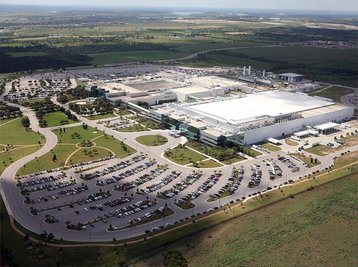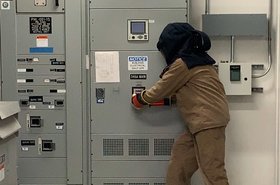Semiconductor manufacturing plants have shut down in Texas as the state suffers from a record winter storm and a failing grid.
Local utility Austin Energy, which has cut the power on more than 200,000 homes for over 36 hours, shut off power to the Austin area's largest electricity users - among them chip factories operated by Samsung, NXP Semiconductors, and Infineon Semiconductors.
Across Texas as a whole, millions have been left without power as Storm Uri brought temperatures down to -7.6°F (-22°C) in some regions. Underinvestment in winterizing the grid caused 30GW of primarily gas-fired capacity to go offline, just as heating demand has spiked. The Electric Reliability Council of Texas recommended that utilities enact rolling outages as a result.
For breaking data center news, subscribe to DCD's newsletter
More power outages are likely in the days to come
Austin Energy general manager Jackie Sargent explained that the utility first asked its biggest customers to lower their energy use, then began to reduce the supply to places with backup generators. As conditions worsened, it cut them off entirely.
"We reached out to our largest customers, and in partnership with them, they shut down their facilities," Sargent told the Austin-American Statesman. "That's not necessarily something that's easy to do. So we really appreciate them for assisting in this in these extreme circumstances."
Among the major power consumers were Samsung, NXP, and Infineon, which all operate multi-billion dollar chip factories. "With prior notice, appropriate measures have safely been taken for the facilities and wafers in production," Samsung spokesperson Michele Glaze said. "We will resume production as soon as power is restored. We are discussing timing with the proper authorities."
The power outage and production shutdown comes as the world grapples with a semiconductor shortage. Automotive companies have already had to idle factories due to limited chip supply, while the Biden administration has promised to look into the causes of the problem, and whether there is a risk to having the majority of production happen out of Taiwan.
So far, data centers have mostly weathered both issues - chip supply has mostly met server demand, and there have yet to be any major outages from Storm Uri. Austin's city data center went down for several hours, but has since shifted to diesel generators. Update: Digital Realty told DCD it has had an ample diesel supply to help keep its facilities online - so much that it has actually shared it with other companies' data centers. Others haven't been as lucky.




